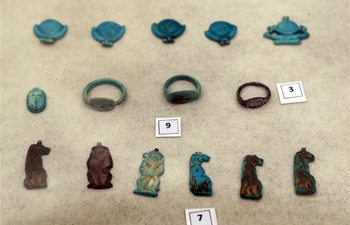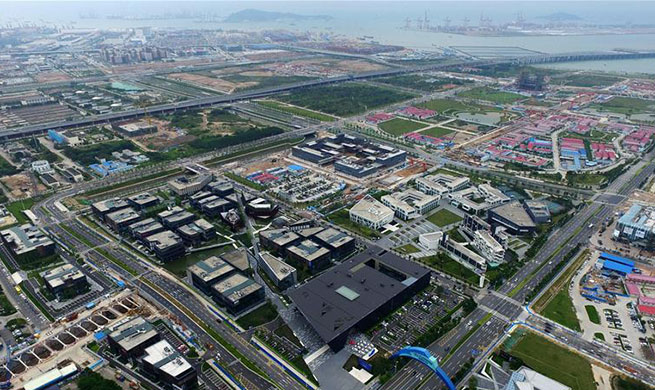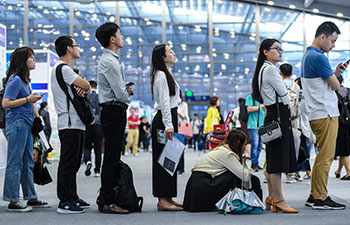BEIJING, April 14 (Xinhua) -- The following are the highlights of China's key technology news from the past week:
VR SURGERY TRAINING
A hospital in Beijing is pioneering the use of virtual reality (VR) technology to help train doctors to perform heart surgeries.
Researchers have built a 3D heart model with typical CT images of heart disease patients. They routed the 3D model to a head-mounted display through VR software developed by a Hangzhou company.
Users equipped with a headset and a motion controller will not only get a 360-degree view of the anatomic structure of a patient's heart but can also interact with some virtual features.
DRONE OBSERVATIONS
A team led by Chinese researchers has revealed the fine-scale surface features of the Antarctic sea ice by using drones to acquire high-resolution images and data.
The UAV observations have provided detailed characterizations of sea ice surface topography, especially the features of ice ridges, which is still a challenge for satellite systems.
FLEXIBLE SOLAR CELLS
A joint research team has developed a new type of highly flexible and stable solar cells that could be used in wearable electronics.
The mica-based perovskite solar cells exhibit a high-efficiency conversion of sunlight into electricity, and can retain more than 91.7 percent of the original conversion efficiency after 5,000 cycles of large deformation bending.
AUTOMATIC DRIVING SIMULATION
To improve driving safety, Chinese researchers have developed an autopilot simulation system featuring outdoor scenes and road conditions. It is expected to be used in autopilot route planning.

















